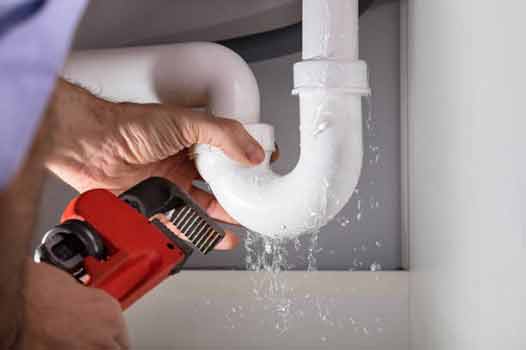The Impact of Bad Plumbing on Water Wastage
Water is one of our most valuable resources and is essential for sustaining life on Earth. However, due to bad plumbing practices, a significant amount of this precious resource is wasted every day. This article examines the various ways in which water is wasted as a result of poor plumbing and the detrimental effects it has on our environment and daily lives.
The Cost of Water Wastage
Water wastage due to bad plumbing not only harms the environment but also costs individuals, communities, and governments a significant amount of money. The amount of water wasted can accumulate quickly, leading to increased water bills for households and businesses. Moreover, repairing leaky pipes and fixtures can be costly, especially if the issue is not addressed promptly.
Additionally, the energy required to treat and distribute water is wasted when it is not utilized efficiently. The pumping and purification processes consume a substantial amount of energy, so wasting water unnecessarily also contributes to higher energy consumption and increased greenhouse gas emissions.
Common Causes of Water Wastage
There are several common plumbing issues that lead to water wastage, including:
- Leaky Faucets and Fixtures: Even a small drip from a faucet can waste a significant amount of water over time. This is not only wasteful but also an annoying sound that can disrupt sleep and cause frustration.
- Running Toilets: A running toilet can waste hundreds of gallons of water every day. This is often caused by a faulty flush valve or flapper that fails to seal correctly, resulting in continuous water flow.
- Leaky Pipes: Hidden leaks in pipes, whether due to corrosion, faulty installations, or shifting foundations, can lead to substantial water wastage. These leaks are often difficult to identify without professional assistance.
- Poorly Installed or Maintained Irrigation Systems: Inefficient irrigation systems can result in water being wasted on sidewalks, driveways, or areas that do not require watering.
- Excessive Water Pressure: High water pressure can cause damage to pipes, resulting in leaks and increased water wastage. It is crucial to regulate the water pressure in plumbing systems to prevent these issues.

By reducing water wastage, we can indirectly reduce our carbon footprint and contribute to mitigating climate change.
The Environmental Impact
Water wastage due to bad plumbing practices has severe consequences for the environment. One of the immediate effects is the depletion of water resources, including both surface water and groundwater. As water becomes scarcer, ecosystems dependent on these water sources suffer, leading to habitat destruction and loss of biodiversity.
In addition to the depletion of water resources, excessive water wastage exacerbates the global water crisis. Many regions around the world are already facing water scarcity, and wasting water through inefficient plumbing further aggravates this issue.
Furthermore, the energy required to treat and distribute water also results in increased greenhouse gas emissions. By reducing water wastage, we can indirectly reduce our carbon footprint and contribute to mitigating climate change.
The Importance of Water Conservation
Water conservation is essential to ensure that this precious resource is available for future generations. By addressing bad plumbing practices, we can significantly reduce water wastage and promote sustainable water management.
There are several steps individuals and communities can take to conserve water:
- Regular Maintenance: Conduct regular inspections and maintenance of plumbing systems to detect and fix leaks promptly. Early detection and repair can prevent significant water loss.
- Upgrade Fixtures: Install water-efficient fixtures such as low-flow toilets, faucets, and showerheads, which can significantly reduce water consumption without compromising performance.
- Water-Efficient Appliances: Choose appliances with high water efficiency ratings, such as dishwashers and washing machines, which use less water per cycle compared to older models.
- Proper Irrigation Practices: Opt for smart irrigation systems that adjust watering schedules based on weather conditions and plant needs. This ensures that water is not wasted on overwatering or inappropriate areas.
- Educate and Raise Awareness: Promote water conservation among friends, family, and the community. By raising awareness about the importance of water conservation, we can collectively make a significant impact on reducing water wastage.

By addressing common plumbing problems and adopting water-saving practices, we can conserve this valuable resource for future generations.
The Role of Plumbing Professionals
Plumbing professionals play a crucial role in addressing bad plumbing practices and reducing water wastage. Their expertise ensures that plumbing systems are properly installed, maintained, and repaired, minimizing the risk of leaks and water loss. Furthermore, they can offer advice on water-efficient fixtures and systems, helping individuals and communities make informed choices for sustainable water management.
By engaging the services of professional plumbers and adhering to best plumbing practices, individuals can contribute to water conservation efforts and ensure a more sustainable future.
In Conclusion
Water wastage due to bad plumbing is a significant issue that negatively impacts our environment, finances, and overall well-being. By addressing common plumbing problems and adopting water-saving practices, we can conserve this valuable resource for future generations.
Let us all work together to prioritize water conservation and ensure that every drop counts.
